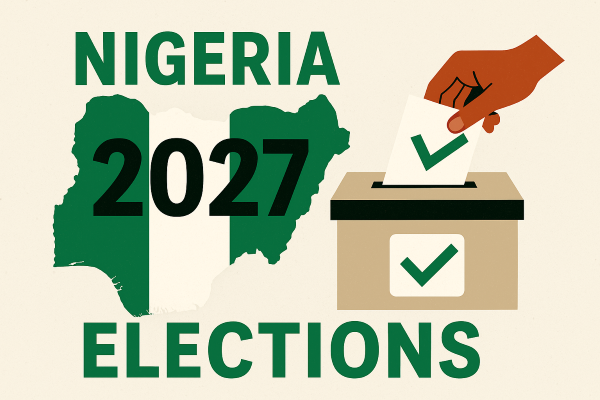As Nigeria approaches the 2027 presidential elections, the coalition of old political figures—Atiku Abubakar, Nasir El-Rufai, Peter Obi, Rotimi Amaechi, Abubakar Malami, and others—faces an uphill battle against the entrenched dominance of the All Progressives Congress (APC) and its leader, President Bola Ahmed Tinubu.
By Abdul-Azeez Suleiman
To understand the challenges facing the opposition coalition, one must first acknowledge the unique ambitions of its key players. Each member brings a distinct political background and personal agenda, often driven by a desire for power rather than a unified vision for Nigeria’s future. Atiku Abubakar, a veteran politician and perennial presidential candidate, has long been associated with the quest for economic reform but has often been criticized for his perceived self-interest. Similarly, figures like Nasir El-Rufai and Rotimi Amaechi, without possessing significant political clout, have also been embroiled in controversies that question their commitment to the public good.
Peter Obi, a relatively newer force in Nigerian politics, has garnered a following based on his promise of integrity and reform. However, the challenge he faces in aligning with established politicians—many of whom are viewed as part of the old guard—could dilute his message and alienate his base. This fragmentation of purpose within the coalition not only complicates their collective identity but also raises questions about their ability to present a coherent alternative to the APC.
The moral burdens borne by these political figures cannot be understated. The Nigerian electorate is increasingly discerning, demanding transparency and accountability from its leaders. Scandals, corruption allegations, and ethical dilemmas have plagued many in the coalition, undermining their credibility. For instance, Abubakar Malami, the former Attorney General, has faced scrutiny over his handling of legal matters that have significant implications for governance and justice. Such controversies create an environment of distrust, making it challenging for the coalition to mobilize grassroots support.
Moreover, the historical context of Nigerian politics reveals a legacy of betrayal and disillusionment. Voters are often skeptical of political coalitions formed out of convenience rather than genuine ideological alignment. As the ADC coalition seeks to rally support, it must contend with the electorate’s memories of past failures and broken promises, further complicating their mobilization efforts.
Individual greed for power among the coalition members also poses a significant challenge. The political arena in Nigeria is often perceived as a zero-sum game, where personal ambition can overshadow collective goals. This mentality can lead to infighting and power struggles within the coalition, as members vie for leadership positions and influence. The lack of a unified strategy may result in a fragmented campaign that fails to resonate with voters, ultimately hindering their ability to mount a credible challenge to the APC.
Furthermore, the electoral process in Nigeria is heavily influenced by financial resources. The ability to fund campaigns, mobilize supporters, and engage in grassroots outreach is critical to electoral success. However, the ADC coalition’s internal divisions and moral dilemmas may deter potential financiers, who are often wary of investing in a group perceived as disorganized or self-serving. The challenge of securing adequate funding will be compounded by the need to counter the APC’s well-established financial machinery.
The APC, under the leadership of President Bola Ahmed Tinubu, has solidified its position through a combination of strategic alliances, robust party machinery, and a deep understanding of Nigeria’s electoral mechanics. The party’s ability to mobilize resources, engage in effective voter outreach, and leverage its incumbency advantage presents a formidable barrier for any opposition coalition.
Tinubu’s administration has focused on consolidating power at various levels of government, ensuring that the APC maintains a strong foothold in critical regions. This strategic positioning allows the party to control narratives and influence public perception, making it increasingly difficult for the opposition to gain traction. The coalition’s challenge is not merely to present an alternative vision but to dismantle the narrative that the APC has carefully constructed over the years.
Public sentiment plays a crucial role in shaping electoral outcomes. The current socio-economic challenges facing Nigeria, including rising inflation, unemployment, and insecurity, create a fertile ground for political discourse. However, the ADC coalition must navigate these issues carefully, as their individual records may hinder their ability to connect with voters on these pressing concerns.
As the 2027 presidential elections approach, the coalition of Atiku Abubakar, Nasir El-Rufai, Peter Obi, Rotimi Amaechi, Abubakar Malami, and others faces a daunting task. The mounting moral burdens, individual greed for power, and the formidable presence of the APC under President Bola Ahmed Tinubu create a challenging environment for mobilization.


